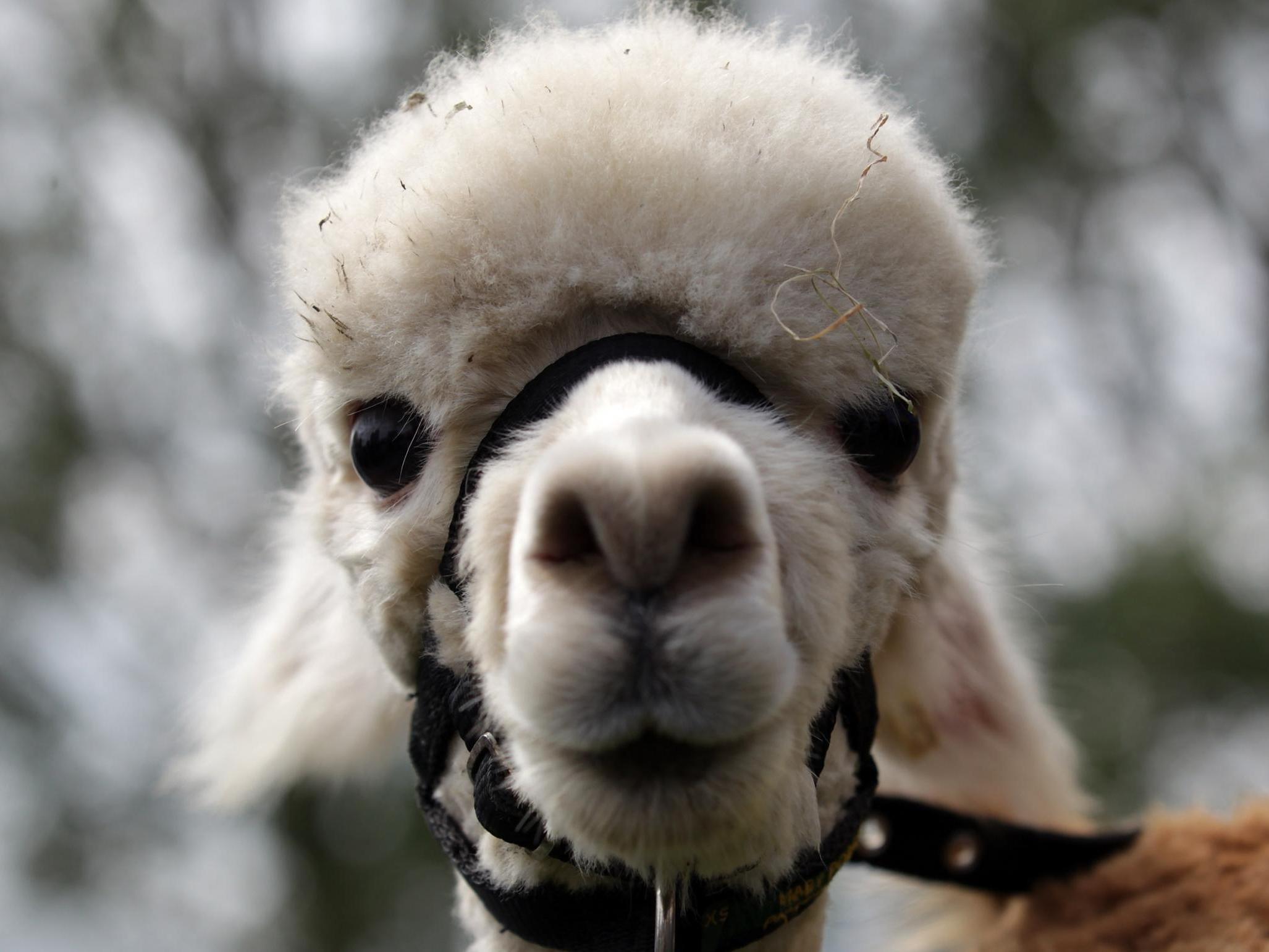Antibodies from llamas found to stop coronavirus entering human cells
Reading-based llama named Fifi at forefront of potential new treatment

UK researchers are celebrating a breakthrough in efforts to develop an effective coronavirus treatment based upon the immune response of llamas.
Antibodies derived from llamas have been found to block coronavirus from entering human cells, in a study published in Nature Structural & Molecular Biology on Monday.
Transfusions of antibody-rich blood plasma from recovered Covid-19 patients are already being trialled in hospitals across the UK, after showing some promise in treating boosting the immune response and recovery of severely ill patients.
However, llamas, camels and alpacas naturally produce quantities of small antibodies with a simpler structure, which can be turned into what are known as “nanobodies”.
Due to their relative simplicity, these nanobodies can also be more easily “redesigned” in laboratories to be as effective as possible in combatting Covid-19, and could possibly be transfused in the same fashion as human plasma.
In their research, the team from the Rosalind Franklin Institute, Oxford University, Diamond Light Source and Public Health England found that the llamas’ nanobodies bind tightly to the spike protein of the Sars-CoV-2 virus, blocking it from entering human cells and stopping infection.
In the study, the team also identified that the engineered nanobodies bind to the spike protein in a new and different way to other antibodies already discovered.
“These nanobodies have the potential to be used in a similar way to convalescent [blood plasma] serum, effectively stopping progression of the virus in patients who are ill,” James Naismith, director of the Rosalind Franklin Institute and professor of structural biology at Oxford University.
“We were able to combine one of the nanobodies with a human antibody and show the combination was even more powerful than either alone. Combinations are particularly useful since the virus has to change multiple things at the same time to escape – this is very hard for the virus to do.
“The nanobodies also have potential as a powerful diagnostic.”
Professor Ray Owens, from Oxford University – who leads the nanobody programme at the Franklin, said the researchers are hopeful they can push the breakthrough on into pre-clinical trials.
“The electron microscopy structures showed us that the three nanobodies can bind to the virus spike, essentially covering up the portions that the virus uses to enter human cells,” added Professor David Stuart, from Diamond Light Source and Oxford University.
Researchers started from a lab-based library of llama antibodies, and are now screening antibodies from Fifi, one of the ‘Franklin llamas’ based at the University of Reading, taken after she was immunised with harmless purified virus proteins.
The team is looking at preliminary results which show that Fifi’s immune system has produced different antibodies from those already identified, which will enable new cocktails of nanobodies to be tested against the virus.
Emeritus professor of immunology at the University of Nottingham, Professor Herb Sewell, who was not involved in the research, hailed the breakthrough as “a very welcome development with the potential for early clinical studies”.
He suggested that, if successful, the resulting treatment could be used to prevent infection in frontline staff likely to be exposed to the virus-before there is a vaccine available.
Prof Sewell also disagreed with the authors’ suggestion that the treatment would only work for severely ill Covid-19 patients, adding: “If effective, nanobody treatment should be used as soon as possible in the infection/disease pathway, and the follow up studies off the back of this work should take this into account.
“Hopefully, clinical studies are soon in the pipe-line.”
Additional reporting by PA
Join our commenting forum
Join thought-provoking conversations, follow other Independent readers and see their replies
Comments